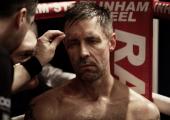Ian McEwan has said that he decided to adapt his 2007 novel On Chesil Beach for the screen himself at least partly because he did not want anyone else to do so (with earlier works, including Atonement, he was glad not to have taken on the adaptation). The sensitivity of the original lies in its interiority, a quality that moves medium with far more difficulty than most. It’s a moot point whether the challenge could have finally been met by anyone, but somehow Dominic Cooke’s film, his screen debut, never quite attains the perfect, lonely poignancy of the book.
That said, Cooke has made a film of quiet quality, his most emphatic achievement to draw such high-calibre performances from his two principals, Florence Ponting (Saoirse Ronan) and Edward Mayhew (Billy Howle). Elaborating their story feels somehow redundant: On Chesil Beach is surely one of those films which most viewers approach knowing at least the outline of the story. It seems equally extraneous to note that the ill-fated wedding night of these lovers is set in 1962, so ubiquitous have been the accompanying references to Philip Larkin (his Annus Mirabilis in particular, with its references to the following year, “Between the end of the ‘Chatterley’ ban/And the Beatles’ first LP”).
The social details are so expertly captured that they seem practically carbon-dated
It’s very much to Cooke’s credit, too, that he has brought no cheap embellishment to a stark story in the way that Hollywood might have done (the screen rights were first with Ang Lee, apparently). The back-and-forth between the couple’s in-the-moment honeymoon unease and their earlier acquaintance and courtship is subtle, as is the way in which character is defined by music – Edward’s jazz set against classical for Florence (the gradations of the latter, from the optimistic expanses of Mozart to the tempests of Beethoven, are nicely caught). (Pictured below: Billy Howle, Saoirse Ronan)
So too their respective family worlds. There’s the contrast between the freedom, the lack of order at the country cottage that is Edward’s home (it's located in some generic English screen-idyll village), and the sterner, harshly defined setting of Florence’s Oxford. It certainly pays, adaptation-wise, to add full visual context for the accident that defines Edward’s mother (Anne Marie-Duff, never overplaying but always poignant). The embellishments chez Ponting are more subtle, though that’s hardly the first word that comes to mind for Emily Watson’s image-breaking performance as Florence’s mother. (One does wonder how the Ponting household, where Iris Murdoch – once famously defined into her bonking and bonkers periods – seems to be on speed dial, has so disregarded sex, including education in aforesaid.) It leaves the trimly-moustached Samuel West, playing Geoffrey Ponting, whose very name seems to have a brisk home-counties efficiency to it, as the dark force of the piece. McEwan’s adaptation underplays his book’s more emphatic hint at abuse, leaving us with just a moment’s ambiguous eye contact between father and daughter across the deck of the family yacht. But the scene in which West, after soundly defeating Edward at tennis before then realising that Florence has been watching, positively explodes, signals with semaphoric clarity that something is very wrong in this family world.
It leaves the trimly-moustached Samuel West, playing Geoffrey Ponting, whose very name seems to have a brisk home-counties efficiency to it, as the dark force of the piece. McEwan’s adaptation underplays his book’s more emphatic hint at abuse, leaving us with just a moment’s ambiguous eye contact between father and daughter across the deck of the family yacht. But the scene in which West, after soundly defeating Edward at tennis before then realising that Florence has been watching, positively explodes, signals with semaphoric clarity that something is very wrong in this family world.
On Chesil Beach, book and film alike, leaves us to ponder the circumstances that brought these protagonists to such a seismic coincidence of anger and fear, one that will annihilate their youth and hope. For these are two lovers who cannot step out of themselves, out of their time, the social details of which are so expertly captured by Cooke and his design collaborators that they seem practically carbon-dated.
Was McEwan consciously aware, writing his story, of another literary honeymoon, another beach, another century, a different poet – “Ah, love, let us be true/To one another! for the world, which seems/To lie before us like a land of dreams…” – and the possibility of a different conclusion to marital desolation? The inability to act – to turn back, to reconcile – is as tragic as action blundered, but it’s not quite tragedy that defines McEwan’s conclusion, rather acute poignancy (another speciality of Larkin). Perhaps the sole false note of Cooke’s film comes in its final scene, one that channels emotion in the most familiar cinematic terms. Until then, On Chesil Beach has been a film of close sensitivity, in which Saoirse Ronan – musician that she is – plays never less than exquisitely.
Overleaf: watch the trailer for On Chesil Beach



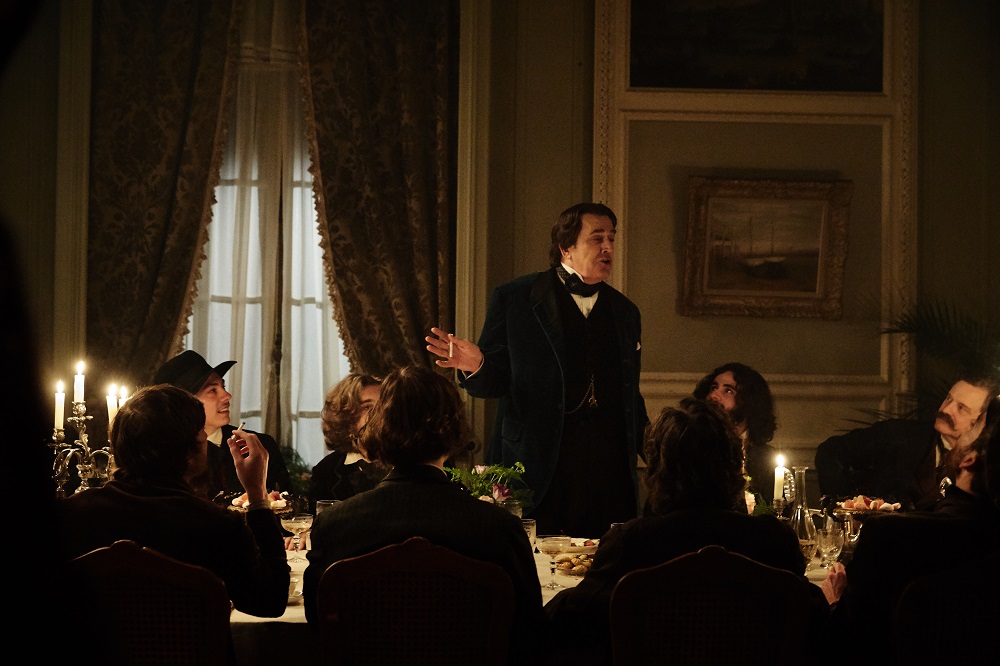 Wilde was released from Reading Gaol in 1897 and immediately fled across the Channel, where there was still no escape from Anglo-Saxon opprobrium. Near the start, a well-to-do woman (a cameo for Anna Chancellor) recognises him in a street in northern France but is forbidden from expressing sympathy by her husband. They both roared in the stalls before the playwright’s downfall, but the English have their standards. Oscar’s strength and saviour are Reggie Turner (Colin Firth) and Robbie Ross (Edwin Thomas) whose love and tolerance is unstinting. But they urge him to stick to the terms of his agreement with his wife Constance (Emily Watson): in order to keep receiving his allowance, he must avoid contact with Lord Alfred Douglas (Colin Morgan).
Wilde was released from Reading Gaol in 1897 and immediately fled across the Channel, where there was still no escape from Anglo-Saxon opprobrium. Near the start, a well-to-do woman (a cameo for Anna Chancellor) recognises him in a street in northern France but is forbidden from expressing sympathy by her husband. They both roared in the stalls before the playwright’s downfall, but the English have their standards. Oscar’s strength and saviour are Reggie Turner (Colin Firth) and Robbie Ross (Edwin Thomas) whose love and tolerance is unstinting. But they urge him to stick to the terms of his agreement with his wife Constance (Emily Watson): in order to keep receiving his allowance, he must avoid contact with Lord Alfred Douglas (Colin Morgan).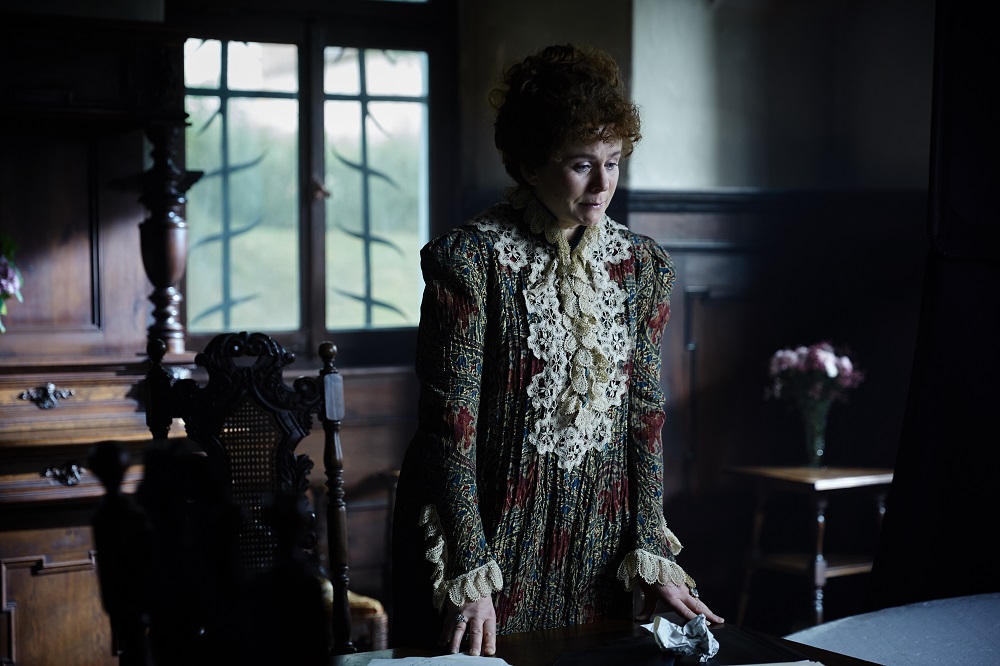 Everett directs himself in his own script and somehow manages not to look overburdened by the immense responsibility. Much prettier than Oscar, he has elongated his jawline to mimic the long face, and the look can be a distraction. But he embraces Wilde’s headlong descent into isolation and penury with a reckless joie de vivre. “I’ve nothing in me, not even fear,” he says after facing down a pack of goading toffs. One awful scene, on the platform of Clapham Junction, embodies all of Wilde’s tragedy, but gives rise to a wonderful climactic joke.
Everett directs himself in his own script and somehow manages not to look overburdened by the immense responsibility. Much prettier than Oscar, he has elongated his jawline to mimic the long face, and the look can be a distraction. But he embraces Wilde’s headlong descent into isolation and penury with a reckless joie de vivre. “I’ve nothing in me, not even fear,” he says after facing down a pack of goading toffs. One awful scene, on the platform of Clapham Junction, embodies all of Wilde’s tragedy, but gives rise to a wonderful climactic joke.

 It leaves the trimly-moustached Samuel West, playing Geoffrey Ponting, whose very name seems to have a brisk home-counties efficiency to it, as the dark force of the piece. McEwan’s adaptation underplays his book’s more emphatic hint at abuse, leaving us with just a moment’s ambiguous eye contact between father and daughter across the deck of the family yacht. But the scene in which West, after soundly defeating Edward at tennis before then realising that Florence has been watching, positively explodes, signals with semaphoric clarity that something is very wrong in this family world.
It leaves the trimly-moustached Samuel West, playing Geoffrey Ponting, whose very name seems to have a brisk home-counties efficiency to it, as the dark force of the piece. McEwan’s adaptation underplays his book’s more emphatic hint at abuse, leaving us with just a moment’s ambiguous eye contact between father and daughter across the deck of the family yacht. But the scene in which West, after soundly defeating Edward at tennis before then realising that Florence has been watching, positively explodes, signals with semaphoric clarity that something is very wrong in this family world. 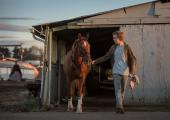


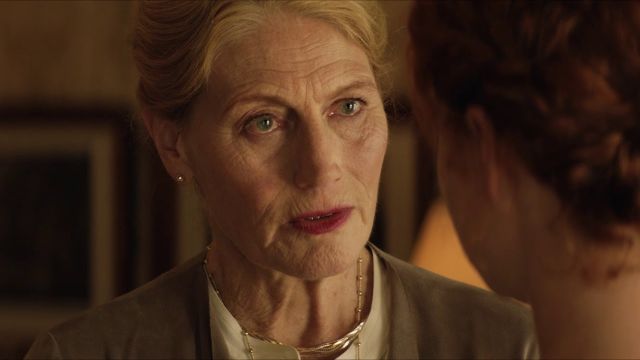 While Moll's
While Moll's 

